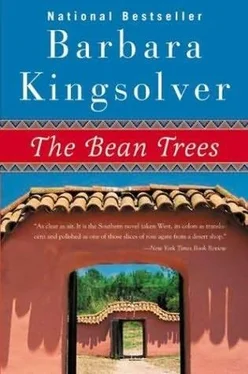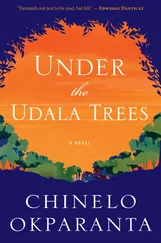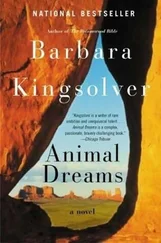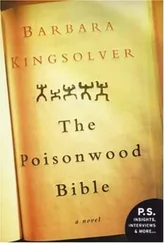The last time I’d really had a chance to talk with Mattie, she’d said there was trouble in the air. Esperanza and Estevan were going to have to be moved to a safe house farther from the border. The two best possibilities were Oregon and Oklahoma.
Flat, hopeless Oklahoma. “What would happen if they stayed here?” I asked.
“Immigration is making noises. They could come in and arrest them, and they’d be deported before you even had time to sit down and think about it.”
“Here?” I asked. “They would come into your house?”
Mattie said yes. She also said, as I knew very well, that in that case Estevan’s and Esperanza’s lives wouldn’t be worth a plugged nickel.
“That just can’t be right,” I said, “that they would do that to a person, knowing they’d be killed. There’s got to be some other way.”
“The only legal way a person from Guatemala can stay here is if they can prove in court that their life was in danger when they left.”
“But they were, Mattie, and you know it. You know what happened to them. To Esperanza’s brother, and all.” I didn’t say, To their daughter. I wondered if Mattie knew, but of course she would have to.
“Their own say-so is no good; they have to have hard proof. Pictures and documents.” She picked up a whitewall and I thought she was going to throw it across the lot, but she only hoisted it onto the top of a pile beside me. “When people run for their lives they frequently neglect to bring along their file cabinets of evidence,” she said. Mattie wasn’t often bitter but when she was, she was.
I didn’t want to believe the world could be so unjust. But of course it was right there in front of my nose. If the truth was a snake it would have bitten me a long time ago. It would have had me for dinner.
Into the Terrible Night
At three o’clock in the afternoon all the cicadas stopped buzzing at once. They left such an emptiness in the air it hurt your ears. Around four o’clock we heard thunder. Mattie turned over the “Closed” sign in the window and said, “Come on. I want you to smell this.”
She wanted Esperanza to come too, and surprisingly she agreed. I went upstairs to phone Edna and Mrs. Parsons, though I practically could have yelled to them across the park, to say I’d be home later than usual. Edna said that was fine, just fine, the kids were no trouble, and we prepared to leave. At the last minute it turned out that Estevan could come too; he had the night off. The restaurant was closed for some unexpected family celebration. We all piled into the cab of Matties truck with Esperanza on Estevan’s lap and me straddling the stick shift. The three of us had no idea where we were headed, or why, but the air had sparks in it. I felt as though I had a blind date with destiny, and someone had heard a rumor that destiny looked like Christopher Reeve.
Mattie said that for the Indians who lived in this desert, who had lived here long before Tucson ever came along, today was New Year’s Day.
“What, July the twelfth?” I asked, because that’s what day it was, but Mattie said not necessarily. They celebrated it on whatever day the summer’s first rain fell. That began the new year. Everything started over then, she said: they planted their crops, the kids ran naked through the puddles while their mothers washed their clothes and blankets and everything else they owned, and they all drank cactus-fruit wine until they fell over from happiness. Even the animals and plants came alive again when the drought finally broke.
“You’ll see,” Mattie said. “You’ll feel the same way.”
Mattie turned onto a gravel road. We bounced through several stream beds with dry, pebbled bottoms scorched white, and eventually pulled over on high ground about a mile or so out of town. We picked our way on foot through the brush to a spot near a grove of black-trunked mesquite trees on the very top of the hill.
The whole Tucson Valley lay in front of us, resting in its cradle of mountains. The sloped desert plain that lay between us and the city was like a palm stretched out for a fortuneteller to read, with its mounds and hillocks, its life lines and heart lines of dry stream beds.
A storm was coming up from the south, moving slowly. It looked something like a huge blue-gray shower curtain being drawn along by the hand of God. You could just barely see through it, enough to make out the silhouette of the mountains on the other side. From time to time nervous white ribbons of lightning jumped between the mountaintops and the clouds. A cool breeze came up behind us, sending shivers along the spines of the mesquite trees.
The birds were excited, flitting along the ground and perching on thin, wildly waving weed stalks.
What still amazed me about the desert was all the life it had in it. Hillbilly that I was, I had come to Arizona expecting an endless sea of sand dunes. I’d learned of deserts from old Westerns and Quickdraw McGraw cartoons. But this desert was nothing like that. There were bushes and trees and weeds here, exactly the same as anywhere else, except that the colors were different, and everything alive had thorns.
Mattie told us the names of things, but the foreign words rolled right back out of my ears. I only remembered a few. The saguaros were the great big spiny ones, as tall as normal trees but so skinny and personlike that you always had the feeling they were looking over your shoulder. Around their heads, at this time of year, they wore crowns of bright red fruits split open like mouths. And the ocotillos were the dead-looking thorny sticks that stuck up out of the ground in clusters, each one with a flaming orange spike of flower buds at its top. These looked to me like candles from hell.
Mattie said all the things that looked dead were just dormant. As soon as the rains came they would sprout leaves and grow. It happened so fast, she said, you could practically watch it.
As the storm moved closer it broke into hundreds of pieces so that the rain fell here and there from the high clouds in long, curving gray plumes. It looked like maybe fifty or sixty fires scattered over the city, except that the tall, smoky columns were flowing in reverse. And if you looked closely you could see that in some places the rain didn’t make it all the way to the ground. Three-quarters of the way down from the sky it just vanished into the dry air.
Rays of sunlight streamed from between the clouds, like the Holy Ghost on the cover of one of Matties dead husband’s magazines. Lightning hit somewhere nearby and the thunder made Esperanza and me jump. It wasn’t all that close, really, about two miles according to Mattie. She counted the seconds between the lightning strike and the thunder. Five seconds equaled one mile, she told us.
One of the plumes of rain was moving toward us. We could see big drops spattering on the ground, and when it came closer we could hear them, as loud as pebbles on a window. Coming fast. One minute we were dry, then we were being pelted with cold raindrops, then our wet shirts were clinging to our shoulders and the rain was already on the other side of us. All four of us were jumping and gasping because of the way the sudden cold took our breath away. Mattie was counting out loud between the lightning and thunderclaps: six, seven, boom!… four, five, six, boom! Estevan danced with Esperanza, then with me, holding his handkerchief under his arm and then twirling it high in the air-it was a flirtatious, marvelous dance with thunder for music. I remembered how he and I had once jumped almost naked into an icy stream together, how long ago that seemed, and how innocent, and now I was madly in love with him, among other people. I couldn’t stop laughing. I had never felt so happy.
Читать дальше












